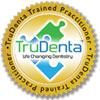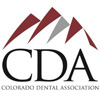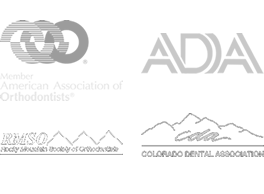Cases of people suffering from TMJ issues and resultant jaw pain have been on the rise in the U.S. If you have ever had this experience, then you know the discomfort and pain that comes with the condition. Even if you haven’t suffered from TMJ or jaw pain, you probably know someone who has, which is why it’s important to be in the know.
The first step is to get to know what TMJ is and how you can identify it. Read the following article from a dental specialist for more:
Find an End to Your TMJ Disorder Pain
Are you dealing with jaw stiffness and pain? Do you notice a popping or clicking sound when opening your mouth? Is recurrent facial TMJ pain driving you crazy? If this sounds like you, then you could be dealing with a common disorder known as temporomandibular joint disorder, or TMJ.
What is TMJ disorder?
This group of jaw conditions causes pain and other problems for the joints and muscles that affect how the jaw moves. It’s believed that trauma to the jaw can play a role in the development of these disorders; however, sometimes there is no known cause. Read more at Fretchman Dental…
Establishing the signs and symptoms of TMJ is the first step in getting the relief you so desperately need. A lot of attempts have been made to find solutions to the problems presented by this condition. The possible treatment methods include both medicinal and non-medicinal methods. The following compilation by Holistic Alternatives gives a list of 5 possible remedies to TMJ that you can try at home:
5 Tips To Help With TMJ
Commonly known as TMJ, temporomandibular joint pain affects over 10 million Americans and can involve difficulty chewing, jaw muscle stiffness and painful popping or clicking, according to the National Institute of Dental and Craniofacial Research.
Although for some people the pain of TMJ goes away on its own, others develop long-term problems and need treatment to help their pain.
Here are five tips you can practice at home to help your TMJ symptoms.
Jaw Exercises
Try opening your mouth as wide as you can without feeling pain, move your jaw to the right and hold for 10 seconds, do the same to the left and repeat five times.
Massage the muscles around your jaw hinge in a downward motion. Read more at Holistic Alternatives…
The tips mentioned above could help you to keep the symptoms from getting worse because they are more preventive than curative. It has been observed that patients respond to traditional treatment methods. On the other hand, further research is showing that TMJ and jaw pain could be related to other body conditions. The following article sheds more light on these developments:

Image Courtesy of Pixabay
Jaw Pain Disorders Could Be Related to Other Body Conditions
As many as 36 million adults in the U.S. suffer from some form of chronic jaw pain. What’s more, many of these may also experience other painful conditions like arthritis or chronic fatigue in other parts of their body.
Chronic jaw pain is actually a group of difficult to define disorders collectively referred to as temporomandibular joint disorders (TMJD or also TMD). TMD not only refers to pain symptoms of the temporomandibular (jaw) joints but also of the jaw muscles and surrounding connective tissue.
Most physicians and dentists agree TMD arises from a complex range of conditions involving inheritable factors, gender (many sufferers are women of childbearing age), environment and behavior. Read more at M&C Dental…
An appreciation of these developments among health researchers is leading them to conduct more studies into the root of the problem and seek a lasting solution.
Fort Collins Headache Center utilizes TruDenta, a cutting-edge technology for diagnosing and treating TMJ and jaw pain. Book a consultation exam with Dr. Jared Ward today to see if you are a candidate for this powerful new therapy. In just 20 minutes it will be clear whether TruDenta is the right course for you. If it is, a personalized treatment plan will be created to have you symptom free in just 12 or fewer weekly visits.
Call Fort Collins Headache Center today at 970-672-8517 or use the contact form on the homepage. We look forward to hearing from you.
Featured Image Courtesy of Pexels


























